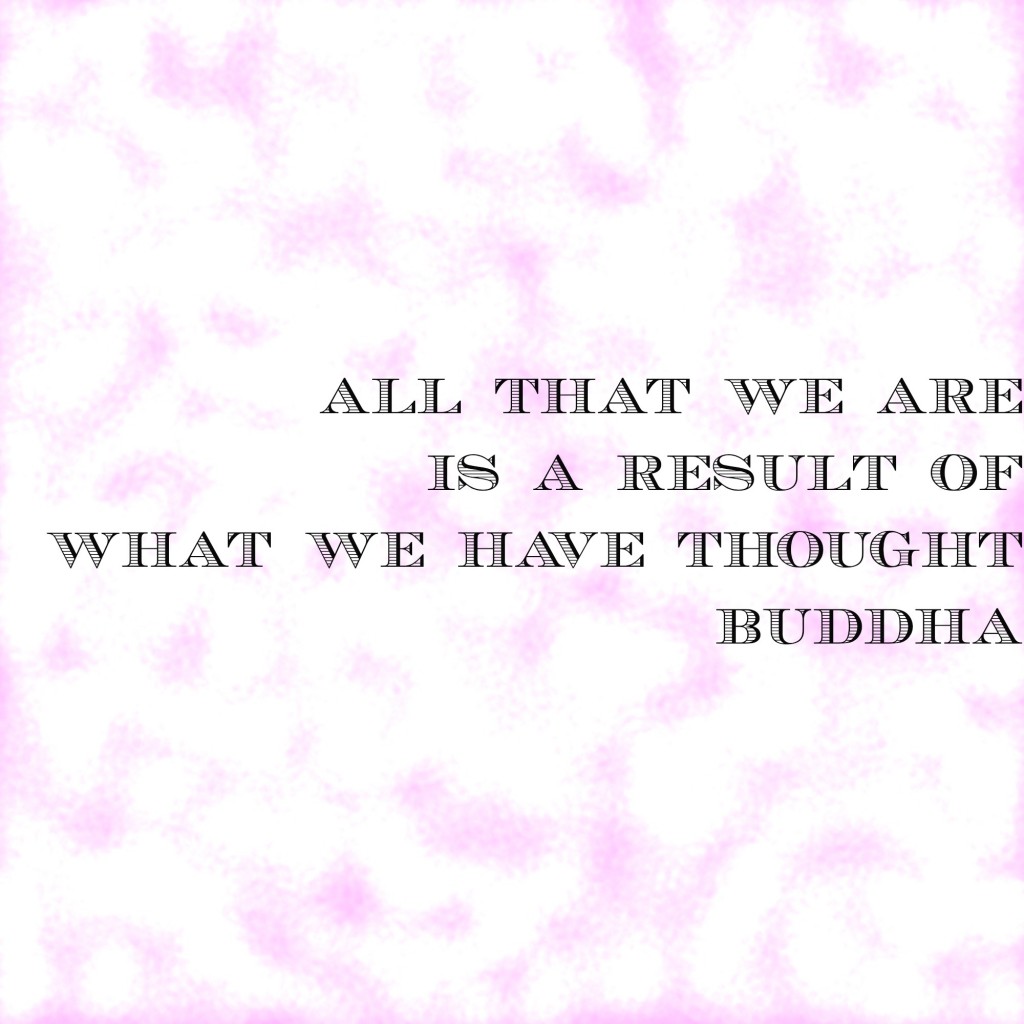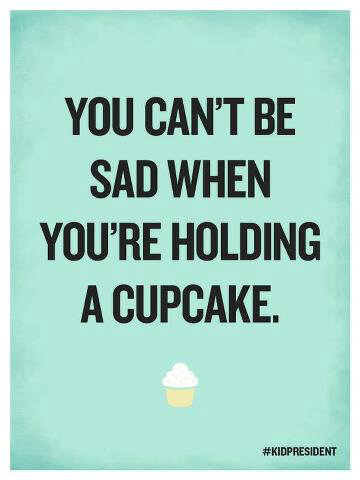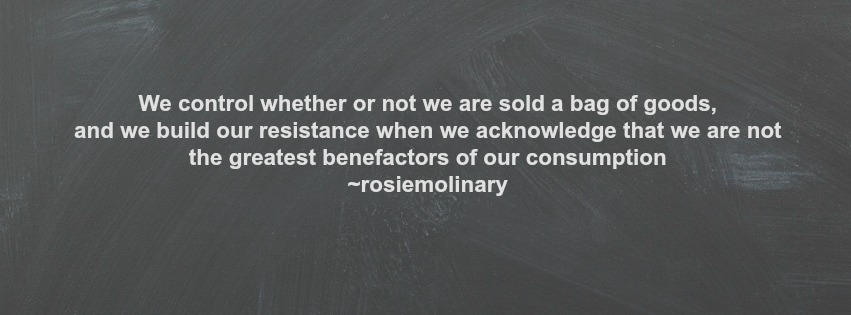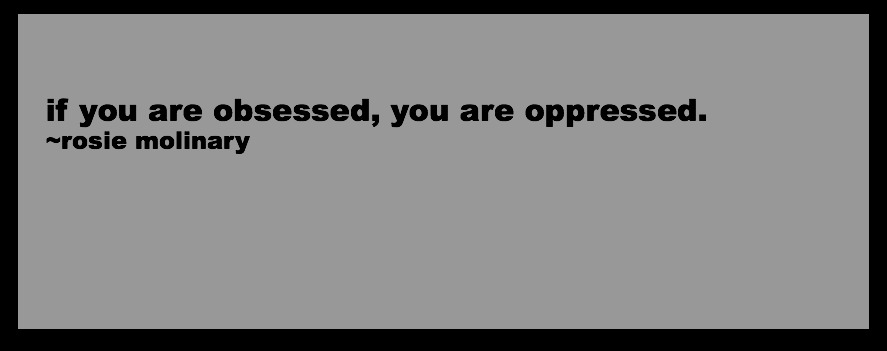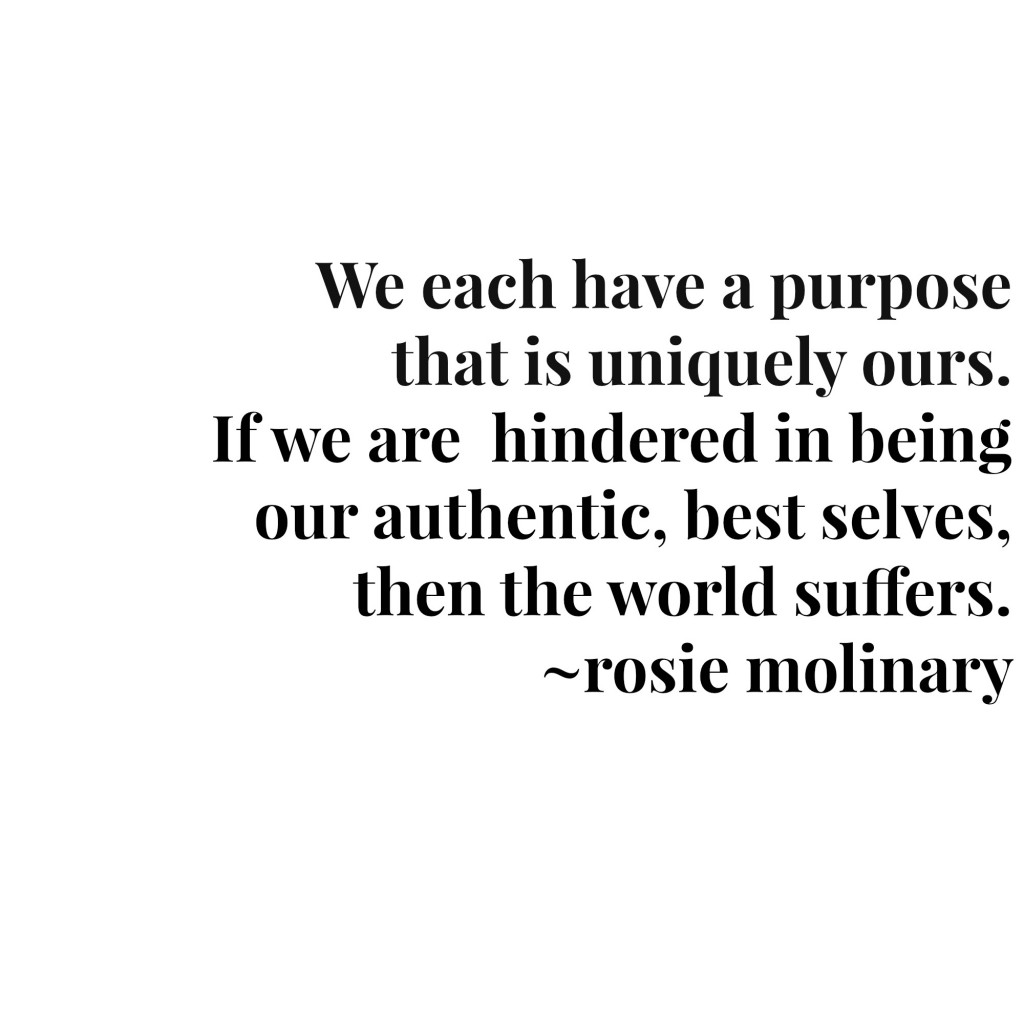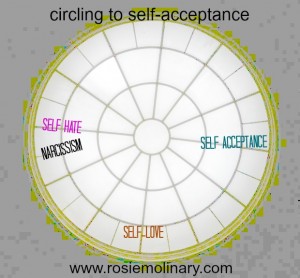You have a mother who laments your weight all of the time- no matter your size. You can be at your thinnest and surely, she feels, you could look even better. You could be at your heaviest, and she definitely lets you know it. She says, “You would be so much happier if you just lost twenty pounds.” The translation? She would be so much happier if you just lost twenty pounds, but the truth is she won’t be. Until she’s happy within herself, she’ll never be happy.
On Monday, we talked here about how important it is for us to change our minds about how we feel our body must be in order for us to be happy. Today, we are talking about how important it is for us to change our minds about what others think of our bodies. Because here is the thing about what others have to say about our body, it isn’t really about us.
When people choose to offer commentary about your appearance (or your station in life), it is never about you. It is about them, about the thing that paralyzes them, about the story they have told themselves, about the narrative they are choosing to live regarding that issue. And because they are so consumed with that issue, they can’t help but mention it when they are with you, pinning all their insecurities, all their fears onto you.
This is the crazy, even more unhealthy thing that happens when we become body obsessed.
First, our eyes get distorted, and we cannot even see ourselves realistically.
But then we start wearing those distorted lenses out into the world. What we are consumed with, we see everywhere with the lens of our understanding. Our stilted understanding. Moreover, the weight of what we are carrying– the shame we feel over our height or our weight or our wild hair or whatever– often feels crushing, too much, like it could very well level us. And we start thinking about how we can take this weight off of ourselves, how we can quit feeling CRUSHED.
The healthiest thing to do would be to change our lens, to quit subscribing to the unhealthy world views we are being fed, to rewrite what we believe in so that we actually believe in ourselves.
But think about choosing water over coffee or Red Bull when you are tired? The healthiest thing to do is not always what we choose. Sometimes we choose what we know will take care of business fast. We make the unhealthy choice. And, in this case, it’s an even bigger problem because it becomes unhealthy for two people.
The person who has his or her own wound who chooses the fast, unhealthy option is looking for a way to pass that wound on. Think about it. A wound like that is so hard to carry, it is so bone-crushing. And, sometimes, if we can give it away for a moment, if we can just take the edge off of our own misery for a moment, well that feels a little like relief.
An aside: It’s only later, with counseling or deliberate insight and personal growth, that we can realize that it wasn’t relief at all. It was a way to numb ourselves. We numb in so many ways, don’t we? With food. With alcohol. With substances. By being snarky and bitchy and mean. We numb because we think the worst thing possible would be to face ourselves, to be vulnerable, to be real- we think that realness, that admission of imperfection is as bad and painful as it gets. But I promise you this. No one who has a healthy relationship with herself has ever looked at another person who stands real in the midst of her vulnerability and said “that looks weak.” Look carefully. From where I am sitting, vulnerability, realness, truth? They all look a lot like courage. Until we give up the myth that both perfect and imperfect exist, we’ll keep missing the real truth: there is no perfect, there is no imperfect, there is only glimmering, vulnerable, soul-refreshing realness and it’s polar opposite. And the polar opposite is wounded and wounds others.
So those who wish to take the pressure off of themselves from their own wound look for the most vulnerable target- a target they know who will not see their barb for what it is and a target who will quietly accept it- in their desperate desire to pass off their own pain for a moment. For your empathy and sympathy and politeness (oh, she won’t make a scene!), you are being targeted.
And so they say their crappy thing to you. For a moment, it feels like relief to them.
“Oh, good, I don’t have to worry about my weight or height or wrinkles or hair or whatever right this minute because I have just made her worry about hers.”
You, meanwhile, are leveled by the bricks thrown at you. And the thrower? Back on their back in personal agony not long after. Verbal Red Bulls’s effects don’t last that long. And the downside is so much worse than the upside. (disclaimer: I have never had an actual Red Bull and can tell you nothing about its effects. I am stressing Verbal Red Bull there).
So, here is what I want you to absolutely understand. Those comments made to you about your body or your station in life? NOT about you.
“How can that be true?” A thin, tall student asked me one semester, tears pressed into the corner of her eyes. “A guy I worked with last night told me that I was too skinny. That he could never find me attractive because of how skinny I am. How can that be about him? It is not about him. It is about what is wrong with me!”
I turned to her, tenderly assessing her tears, hoping she could bring herself to hear what I was saying, to understand so that his words wouldn’t wound her anymore.
“What are you too skinny for?” I asked her.
“For him to think I am beautiful,” she answered, wondering if I had gone mad and missed her earlier explanation.
“That’s right, honey. For HIS definition of beauty. For HIS understanding of things. He’s the one that has made it a rule to see beauty in just that one way. He is the one who made this rule that he can only date one type of woman. He is the one incapable of admiring anything outside of the beauty box of his understanding. He is the one that feels that beauty has to have such a narrow definition. Not you. Just because he said it to you doesn’t mean you have to believe what he does. Moreover, why does it even matter to you what he thinks? You said he wasn’t that nice a guy who you don’t share any values with last week.”
Her mouth formed a sudden O. She got it.
Here is the truth: when someone tells you that you are not enough because of your hair, your eyes, your weight, your height, she is judging you based on what she believes to be true, what she has prioritized, what insecurities she nurses. It is not your stuff being shown to you with that comment. It is his or her stuff. That comment made to you isn’t an insight into you. It is insight into that person and what he or she has going on. It is a reflection of them and what they have going on. Don’t let their stuff become your stuff.


